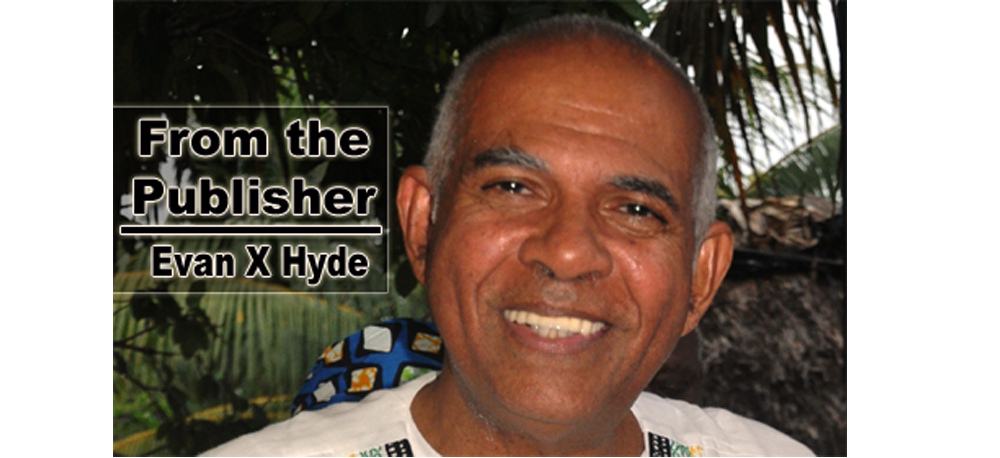Karl Marx famously said that religion was the opium of the masses, in other words, something used by the wealthy to sedate the poor.
Two or three weeks ago, a host on KREM Radio who is a religious person, expressed the same opinion about sports, that it was a sedative for poor people. He may be right, in that sports usually brings gambling, and usually alcohol, with it, and often sports sparks sexual adventurism.
Still, the Olympics, planet earth’s most spectacular forum for international athletics, emphasizes many good things, such as family solidarity, national patriotism, personal discipline, and healthy living.
As the 2024 Olympic Games come to an end in Paris, France, it was notable and noticeable to us Belizeans that tiny Caribbean islands like Dominica and St. Lucia had won gold medals for the first time ever. It was also noticeable that Belize had sent more officials than athletes (one) to France.
It could have been worse. There was one time in the 1960s when British Honduras sent one sports official to the Olympic Games and no athlete.
I think that my late father was a unique kind of revolutionary in that he revered sports, and abhorred discrimination against athletes because of their family or tribal origins. This is how he raised his children, with a reverence for sports.
A base issue in Belizean sports is money, because athletes need money for nutrition, training, and medical attention in order to be regionally and internationally competitive.
It is impossible for a small Caribbean island to have athletes who are better athletes than Belizeans simply because they were born on that island. The success of the athletes from Caribbean islands, especially Jamaica and Trinidad, derives, in the first instance, from the support which these countries give to their athletes. Often, these athletes receive athletic scholarships from American universities, which elevate their level of training and performance.
Now then, there was a time in the mid-1950s when a Belizean, Ludwig Lightburn, was the British Empire and Commonwealth lightweight boxing champion, and was ranked second or third in the world in his weight class. Other Belizean boxers, like Hankin Barrow and Roy “Slim Terror” Cadle, had been highly rated in Panama in the 1940s.
Why did British Honduras not have world class track and field athletes, as opposed to world class boxers? For me, the reason was that boxing was a professional sport here, and track was totally amateur in the colony.
There was a time when professionals were not allowed to compete in the Olympics. The local sports powerhouse of the time, Hon. Gilmore Hinkson, was a total believer in amateurism, and he was vigilant in ensuring that no Belizean athlete ever received financial assistance of any kind. This was the 1950s and 1960s. The reality, however, was that outside of Belize all these Olympic athletes from other countries could have been considered professionals, strictly speaking, because they were receiving all kinds of assistance. This was so widely known that the Olympic bureaucrats eventually gave in and allowed declared professionals to compete in the Games. Exhibit A: Lebron James. In Belize, we were still insisting on amateurism.
Around 1975 or so, some of us in the senior football league in Belize City began to push for a cut of the gate receipts. This amounted to a form of professionalism, and I used this newspaper platform to support it. The only team to reject the proposal for a cut of the gate receipts was Landivar. Perhaps they knew something the rest of us did not.
In any case, by the time the PUP won the 1979 general election, I was a known advocate of professionalism in sports. Hon. Said Musa was named Minister of Education and Sports. He told me the government would prepare legislation for a National Sports Council, and I would be named the chairman of that council.
Things were going well while the legislation was being prepared. I remember we held a very successful “Sports Spectacular” at the MCC Grounds in early 1980. But shortly after that, a man I understood to be speaking for the Olympic bureaucrats here behind the scenes, said at a meeting at the Riverside Hall that the Olympic Committee had issues with the Sports Council legislation.
I thought I knew what this meant, that they would fight me and professionalism. Perhaps I was hasty. But remember, I was broke. I went to Mr. Musa and told him that there were forces out there who were hostile to the Council and me. I never asked him if he was prepared to fight these forces. Perhaps I should have. I walked away.
The 2024 Olympics are coming to an end. St. Lucia and Dominica will celebrate their gold medals. Bravo for them. Things will return to normal in Belize for the next four years. The young Belizean talent in the streets will drift away from school and into different kinds of trouble. You will hear Bukele noises. When the world gathers in 2028 for the competition, they will wonder why Belize is so insignificant. It is because our talent is being discriminated against by the oligarchs, the fat cats. Straight like that.

